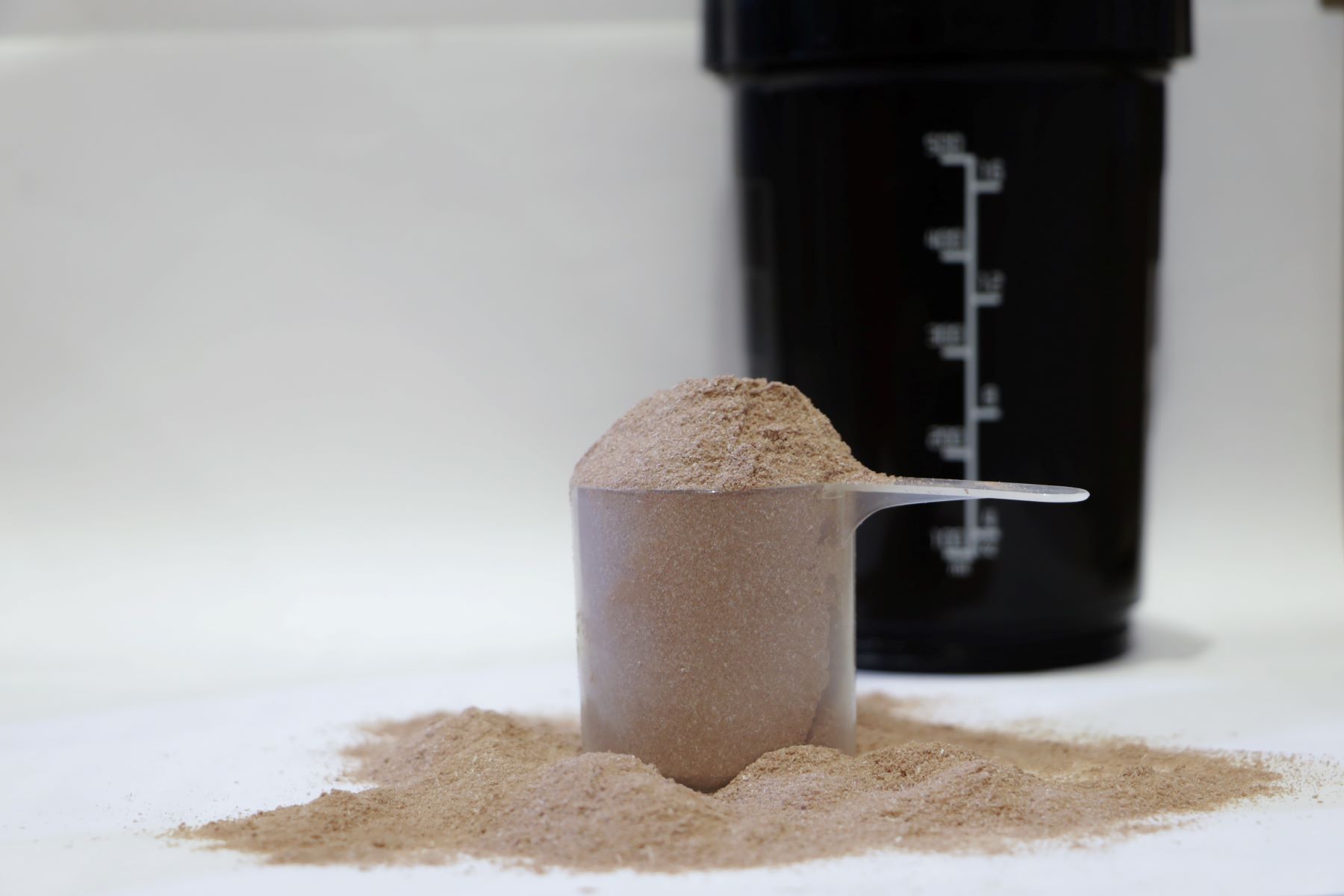

Featured
What Are The Health Benefits Of Cilantro
Published: September 8, 2023
Discover the featured health benefits of cilantro, including its powerful antioxidants and detoxification properties. Learn how this herb can boost your immune system and promote overall well-being.
Introduction
Cilantro, also known as coriander or Chinese parsley, is a popular herb used in various cuisines around the world. Its vibrant green leaves and strong aroma make it a versatile ingredient that adds flavor and freshness to dishes. But did you know that cilantro also offers a range of health benefits? From its rich nutritional profile to its potential antioxidant and anti-inflammatory effects, cilantro is more than just a flavorful herb. In this article, we will explore the various health benefits that cilantro has to offer and why you should consider incorporating it into your diet.
Cilantro is packed with essential nutrients, vitamins, and minerals that contribute to overall health and well-being. It is a good source of vitamin K, vitamin C, and provitamin A, which are important for maintaining healthy bones, boosting immune function, and promoting healthy vision, respectively. Cilantro also contains small amounts of minerals like potassium, calcium, and magnesium, which are essential for maintaining proper nerve and muscle function.
One of the standout features of cilantro is its high antioxidant content. Antioxidants help protect the body’s cells from damage caused by free radicals, which can lead to chronic diseases such as heart disease, cancer, and aging. Cilantro contains various antioxidants, including flavonoids, phenolic compounds, and vitamin C, which contribute to its potent antioxidant activity. Regular consumption of cilantro may help reduce oxidative stress and inflammation in the body, promoting overall health and well-being.
Another notable health benefit of cilantro is its potential detoxification properties. Cilantro contains compounds such as cilantro leaf oil, which have been shown to aid in the removal of heavy metals, such as lead, mercury, and aluminum, from the body. These heavy metals can accumulate in the body over time and have been associated with various health issues, including neurological disorders and organ damage. Incorporating cilantro into your diet may help support the body’s natural detoxification processes and reduce the burden of heavy metal toxicity.
Additionally, cilantro has been found to have anti-inflammatory effects on the body. Chronic inflammation is at the root of many diseases, including arthritis, heart disease, and certain types of cancer. Cilantro contains natural compounds that have been shown to inhibit inflammatory pathways in the body, reducing inflammation and potentially lowering the risk of chronic diseases. Regular consumption of cilantro may help support a healthy inflammatory response within the body.
In the next sections, we will delve deeper into the specific health benefits of cilantro, including its digestive aid properties, immune system-boosting effects, heart health benefits, and potential anti-cancer properties. With its rich nutritional profile and wide-ranging benefits, cilantro is a herb that deserves a place in your kitchen and on your plate.
Nutritional Profile of Cilantro
Cilantro is not only bursting with flavor but also packed with essential nutrients that can contribute to your overall health. Let’s take a closer look at the nutritional profile of cilantro.
Cilantro is a low-calorie herb that is rich in vitamins and minerals. A 100-gram serving of cilantro provides approximately 23 calories. However, the real nutritional powerhouse lies in its vitamin and mineral content. Cilantro is an excellent source of vitamin K, which is essential for blood clotting and bone health. It also contains a significant amount of vitamin C, a powerful antioxidant that supports immune function and collagen production.
Furthermore, cilantro is loaded with provitamin A, which is converted to vitamin A in the body. Vitamin A is important for maintaining healthy vision, promoting cell growth, and supporting immune function. In addition to these vitamins, cilantro contains small amounts of essential minerals such as potassium, calcium, and magnesium. These minerals are necessary for various bodily functions, including nerve and muscle function, maintaining a healthy heartbeat, and regulating blood pressure.
Cilantro is also a great source of dietary fiber. Fiber plays a crucial role in supporting digestion and preventing constipation. It can also help regulate blood sugar levels and promote feelings of fullness, making it beneficial for weight management.
In terms of antioxidants, cilantro is packed with beneficial compounds. It contains flavonoids and phenolic compounds that act as antioxidants, protecting your body from oxidative stress caused by free radicals. These antioxidants help reduce inflammation, support a healthy immune system, and may even have anti-cancer properties.
Overall, cilantro is a nutrient-dense herb that provides essential vitamins, minerals, and antioxidants. Adding cilantro to your meals not only enhances the flavor but also contributes to a well-rounded and nutritious diet.
Rich in Antioxidants
Cilantro is not only a flavorful herb but also a powerhouse of antioxidants. Antioxidants are compounds that help protect the body against damage caused by free radicals, which are unstable molecules that can harm cells and contribute to chronic diseases such as heart disease, cancer, and aging.
Cilantro contains various antioxidants, including flavonoids, phenolic compounds, and vitamin C. These antioxidants work together synergistically to provide a potent defense against oxidative stress. Flavonoids, such as quercetin and kaempferol, have been shown to have anti-inflammatory, antimicrobial, and anticancer properties. They help neutralize free radicals, reduce inflammation, and support overall health and well-being.
Phenolic compounds in cilantro, such as caffeic acid and chlorogenic acid, also exhibit strong antioxidant activity. These compounds scavenge free radicals and help prevent cellular damage. Additionally, chlorogenic acid has been found to have potential anti-cancer effects by inhibiting the growth of cancer cells and promoting cell death.
Vitamin C is another essential antioxidant found abundantly in cilantro. It supports immune function, collagen synthesis, and acts as a potent scavenger of free radicals. Vitamin C has been shown to reduce the risk of chronic diseases and boost overall health.
Regular consumption of cilantro, with its antioxidant-rich properties, can contribute to reducing oxidative stress and inflammation in the body. This can help protect against chronic diseases, support a healthy immune system, and maintain youthful-looking skin.
Incorporating cilantro into your diet is easy. You can add it as a garnish to salads, soups, and stir-fries, or blend it into dips and sauces for an extra burst of freshness. By doing so, you not only enhance the flavor of your dishes but also reap the benefits of its abundant antioxidants.
Detoxification Properties
Cilantro has gained attention for its potential detoxification properties, particularly in aiding the removal of heavy metals from the body. Heavy metals, such as lead, mercury, and aluminum, can accumulate in the body over time from various sources like the environment, food, and water. These metals can have detrimental effects on health, leading to neurological disorders, organ damage, and other health issues.
Research suggests that cilantro may help support the body’s natural detoxification processes and assist in removing heavy metals. Cilantro contains compounds such as cilantro leaf oil and cilantro binding factor, which have been found to bind to heavy metals and facilitate their elimination from the body. These compounds act as chelating agents, helping to mobilize and excrete heavy metals through urine and feces. This detoxification process may help reduce the body’s burden of heavy metal toxicity and promote overall well-being.
In addition to heavy metals, cilantro may also support liver detoxification. The liver plays a crucial role in the body’s detoxification processes by breaking down and eliminating toxins. Cilantro contains beneficial compounds that can support liver health and enhance its detoxification function. By promoting liver health, cilantro aids in the body’s ability to eliminate harmful substances and maintain optimal overall health.
Including cilantro in your diet can be a simple and effective way to support natural detoxification processes in the body. You can add cilantro to salads, juices, smoothies, or incorporate it into your favorite detoxifying recipes. However, it’s important to note that cilantro should not be relied upon as the sole method of detoxification, and a balanced diet and healthy lifestyle are essential for overall well-being.
As with any dietary or health supplement, it is advisable to consult with a healthcare professional before making any significant changes to your diet or incorporating cilantro as a part of a detoxification regimen, especially if you have underlying health conditions or are taking medications.
Anti-Inflammatory Effects
Inflammation is a natural response of the immune system to protect the body from injury and infection. However, chronic inflammation can contribute to the development of various diseases, including arthritis, cardiovascular disease, and certain types of cancer. Fortunately, cilantro possesses anti-inflammatory properties that can help combat chronic inflammation and promote overall health.
Cilantro contains natural compounds such as linalool, cineole, and alpha-pinene, which have been found to possess anti-inflammatory properties. These compounds inhibit the production of pro-inflammatory molecules and substances in the body, reducing inflammation and its negative effects on health. By reducing inflammation, cilantro may help alleviate symptoms associated with conditions such as arthritis and improve overall well-being.
Studies have shown that cilantro can help reduce levels of inflammatory markers, such as C-reactive protein and interleukin-6, in the body. This indicates that regular consumption of cilantro may help modulate the body’s inflammatory response and promote a healthy balance.
In addition to its anti-inflammatory properties, cilantro also contains antioxidants that further support its anti-inflammatory effects. Antioxidants help combat oxidative stress, which can contribute to chronic inflammation. By reducing oxidative stress, cilantro can help decrease inflammation and the associated risks of chronic diseases.
Incorporating cilantro into your diet is a simple and delicious way to enjoy its anti-inflammatory benefits. You can add cilantro to salads, soups, marinades, and even homemade salsa or guacamole. By including cilantro in your meals, you not only enhance the flavor but also support a healthy inflammatory response in your body.
However, it’s important to note that cilantro’s anti-inflammatory effects should not replace medical advice or prescribed treatments for inflammatory conditions. It can be a beneficial addition to a healthy lifestyle and diet, but always consult with a healthcare professional for personalized guidance and management of any health concerns.
Digestive Aid
Cilantro not only adds a burst of flavor to your meals but can also provide digestive benefits. The herb contains natural compounds that can help support digestion and promote a healthy gut.
One of the key digestive benefits of cilantro is its carminative properties. Carminatives are substances that help alleviate gas and bloating by promoting the release of excess gas from the digestive tract. Cilantro contains essential oils such as linalool and geranyl acetate, which have been found to have carminative properties. Incorporating cilantro into your meals can help soothe the stomach and relieve digestive discomfort.
Cilantro is also a good source of dietary fiber, which plays a crucial role in supporting healthy digestion. Fiber adds bulk to the stool, promoting regular bowel movements and preventing constipation. Adequate fiber intake can also help regulate blood sugar levels, promote satiety, and support weight management.
In addition to its carminative and fiber content, cilantro may also help promote the growth of beneficial gut bacteria. A healthy gut microbiome is vital for proper digestion and overall well-being. Cilantro contains natural antimicrobial compounds that can help inhibit the growth of harmful bacteria in the gut while promoting the growth of beneficial bacteria. This can help maintain a healthy balance of gut flora and support optimal digestive function.
You can incorporate cilantro into your diet in various ways to reap its digestive benefits. Add it as a garnish to salads or cooked dishes, blend it into dressings or dips, or infuse it into your detox water for a refreshing twist. Experiment with different recipes and find creative ways to include cilantro in your meals to give your digestive system a boost.
However, if you have specific digestive concerns or conditions, it’s always best to consult with a healthcare professional for personalized advice and guidance. They can provide you with tailored recommendations to address your unique digestive needs.
Immune System Booster
Cilantro is not just a flavorful herb; it also has immune-boosting properties that can help support a healthy immune system. A strong immune system is essential for defending against pathogens, preventing illness, and maintaining overall health and vitality.
One of the key ways that cilantro contributes to immune support is through its high vitamin C content. Vitamin C is a powerful antioxidant that supports immune function. It helps stimulate the production of white blood cells, which are vital for fighting off infections and foreign invaders in the body. Regular consumption of cilantro can help ensure an adequate intake of vitamin C, thereby strengthening your immune system and promoting overall health.
Cilantro also contains natural compounds with antimicrobial properties. These compounds, such as dodecenal and tridecenal, have been found to possess antibacterial and antifungal effects. They may help inhibit the growth of harmful microorganisms, supporting a healthy balance of bacteria in the body and reducing the risk of infections.
In addition to its immune-boosting properties, cilantro is rich in antioxidants. These antioxidants help protect the body’s cells from damage caused by free radicals, thereby reducing oxidative stress and inflammation. By reducing oxidative stress and inflammation, cilantro can help support the immune system and enhance its ability to function optimally.
Incorporating cilantro into your daily meals and dishes is a simple and delicious way to enhance your immune system. Add it as a garnish to soups, stews, and curries, or mix it into salads and dips for an extra dose of freshness and flavor. By regularly consuming cilantro, you can strengthen your immune system, enhance your body’s natural defense mechanisms, and promote overall well-being.
It’s important to note that while cilantro can contribute to immune support, it should not replace other healthy lifestyle practices that also promote a strong immune system, such as regular exercise, adequate sleep, stress management, and a balanced diet. As always, consult with a healthcare professional for personalized advice regarding your immune health and any specific concerns you may have.
Heart Health Benefits
Cilantro not only adds a burst of flavor to your meals but also offers numerous benefits for heart health. Incorporating cilantro into your diet can be a delicious way to support a healthy heart and maintain cardiovascular well-being.
One of the key factors that contribute to cilantro’s heart health benefits is its antioxidant properties. Cilantro is rich in antioxidants, such as flavonoids and phenolic compounds, that help protect the heart by reducing oxidative stress and inflammation. By combatting these factors, cilantro may help lower the risk of heart disease and maintain overall cardiovascular health.
Cilantro also contains compounds that have been shown to have potential cholesterol-lowering effects. High levels of LDL (low-density lipoprotein) cholesterol, also known as “bad” cholesterol, are associated with an increased risk of heart disease. Certain compounds found in cilantro, such as linalool and eugenol, have been found to help lower LDL cholesterol levels and support healthy cholesterol balance.
Furthermore, cilantro contains essential minerals, such as potassium and magnesium, that play a crucial role in maintaining heart health. Potassium helps regulate blood pressure by counteracting the negative effects of sodium and promoting healthy blood vessel function. Magnesium is involved in numerous processes within the body, including maintaining a steady heartbeat and supporting muscle function.
Adding cilantro to your meals can also be beneficial for weight management, which is closely linked to heart health. Cilantro is low in calories and high in fiber, promoting feelings of fullness and reducing the risk of overeating. By incorporating cilantro into your diet, you can potentially support healthy weight management and reduce the risk of obesity, a risk factor for heart disease.
It’s important to note that while cilantro can offer heart health benefits, it should not replace other aspects of a heart-healthy lifestyle. Regular exercise, a balanced diet, maintaining healthy blood pressure and cholesterol levels, and avoiding tobacco and excessive alcohol consumption are all crucial for a healthy heart.
Consult with a healthcare professional for personalized advice and guidance on maintaining a healthy heart and incorporating cilantro as part of a heart-healthy diet. By making small dietary changes and including cilantro in your meals, you can take an active role in supporting your heart health and overall well-being.
Skin Health Benefits
Cilantro not only enhances the flavors of your dishes but can also provide numerous benefits for your skin. With its rich array of nutrients and antioxidants, cilantro can help promote healthy, vibrant skin and address various skin concerns.
One of the key factors that contribute to cilantro’s skin health benefits is its high antioxidant content. Antioxidants help protect the skin from damage caused by free radicals, which can contribute to premature aging, wrinkles, and dull-looking skin. Regular consumption of cilantro can help reduce oxidative stress and support a youthful appearance.
Cilantro also contains vitamin C, which plays a crucial role in collagen synthesis. Collagen is a protein that provides structure and strength to the skin. Sufficient vitamin C promotes collagen production, helping to maintain skin elasticity and reduce the appearance of fine lines and wrinkles.
Furthermore, cilantro contains compounds with anti-inflammatory properties that can help soothe and calm the skin. Inflammation is associated with various skin conditions, such as acne, eczema, and rosacea. By reducing inflammation, cilantro may help alleviate symptoms and promote healthier, clearer skin.
Cilantro’s natural antimicrobial properties can also be beneficial for skin health. It has been found to possess antibacterial and antifungal effects, which can help combat acne-causing bacteria and prevent the growth of harmful microorganisms on the skin. This can contribute to clearer skin and a reduced risk of breakouts.
Incorporating cilantro into your diet is a simple way to harness its skin health benefits. You can add fresh cilantro leaves to your salads, blend it into smoothies, or incorporate it into homemade face masks and skincare products. By consuming cilantro and using it topically, you can nourish your skin from within and externally.
It is important to note that while cilantro can offer benefits for the skin, it should be used in conjunction with other skincare practices, such as proper cleansing, moisturizing, and sun protection. Additionally, individual results may vary, and consulting with a dermatologist is advisable for personalized skincare advice and addressing specific skin concerns.
With its nutrient content and various skin-enhancing properties, cilantro can play a role in promoting healthy, glowing skin. By incorporating cilantro into your skincare routine and maintaining a well-rounded approach to skincare, you can support your skin’s health and achieve a radiant complexion.
Potential Anti-Cancer Properties
Cilantro, the flavorful herb known for its culinary uses, may also possess potential anti-cancer properties. While research in this area is limited and ongoing, preliminary studies have highlighted the presence of certain compounds in cilantro that exhibit anticancer effects.
One such compound is quercetin, a flavonoid that has been studied for its potential anti-cancer properties. Quercetin acts as an antioxidant and has been found to inhibit the growth of cancer cells and induce cell death in various types of tumors. Additionally, cilantro contains other flavonoids and phenolic compounds that possess potential anti-cancer effects, such as kaempferol and apigenin.
Furthermore, cilantro contains certain compounds with chemo-preventive properties, meaning they can help prevent the initiation, promotion, and progression of cancer cells. These compounds have been observed to inhibit the growth of cancer cells and reduce the risk of certain types of cancer, such as breast, colon, and lung cancer.
Cilantro also exhibits antioxidant and anti-inflammatory properties, which play a vital role in reducing the risk of cancer. Chronic inflammation and oxidative stress, when left unchecked, can contribute to the development and progression of cancer. By reducing inflammation and combating oxidative stress, cilantro may help protect against cellular damage and the formation of cancerous cells.
It is important to note that while cilantro shows promise as a potential anti-cancer agent, more research is needed to fully understand its mechanisms of action and its impact on different types of cancer. In addition, it is crucial to incorporate cilantro as part of a balanced and varied diet alongside other healthy lifestyle habits, such as regular exercise, not smoking, and maintaining a healthy weight.
If you have concerns about cancer prevention or have a family history of cancer, it is always recommended to consult with a healthcare professional. They can provide personalized advice and guidance on cancer prevention strategies tailored to your specific needs.
While cilantro may have potential anti-cancer properties, it is important to remember that it is not a substitute for professional medical advice or cancer treatment. If you suspect or have been diagnosed with cancer, it is crucial to follow the guidance of your healthcare team and undergo appropriate treatment.
Conclusion
Cilantro, with its vibrant green leaves and distinct flavor, is not just a culinary herb but also a nutritional powerhouse that offers a range of health benefits. From its antioxidant and anti-inflammatory properties to its potential detoxification, heart health, and immune-boosting effects, cilantro is much more than a simple garnish.
Cilantro is rich in essential nutrients, including vitamins A, C, and K, as well as minerals like potassium and magnesium. These nutrients support overall health and contribute to various bodily functions. Additionally, cilantro contains antioxidants, such as flavonoids and phenolic compounds, which help protect the body’s cells from damage caused by free radicals. Its potential anti-inflammatory effects may also help alleviate inflammation-related health conditions.
The detoxification properties of cilantro make it particularly interesting. It has shown potential in aiding the removal of heavy metals from the body, supporting liver health, and maintaining overall well-being. Additionally, cilantro’s potential anti-cancer properties and benefits for heart health, digestive health, and immune system function make it a versatile herb that can be incorporated into a balanced and nutritious diet.
While cilantro offers numerous health benefits, it is important to remember that individual responses may vary. Additionally, cilantro should be used as part of an overall healthy lifestyle and should not replace medical advice or treatment. As always, it is advisable to consult with a healthcare professional before making any significant dietary changes or incorporating cilantro as part of a specific health regimen.
Whether you choose to add cilantro to your dishes for its flavor or for its health benefits, it is an herb that can certainly elevate your culinary experience and contribute to your overall well-being. So, why not embrace the versatility and goodness of cilantro and explore the various ways you can incorporate it into your meals and reap the rewards it has to offer?







